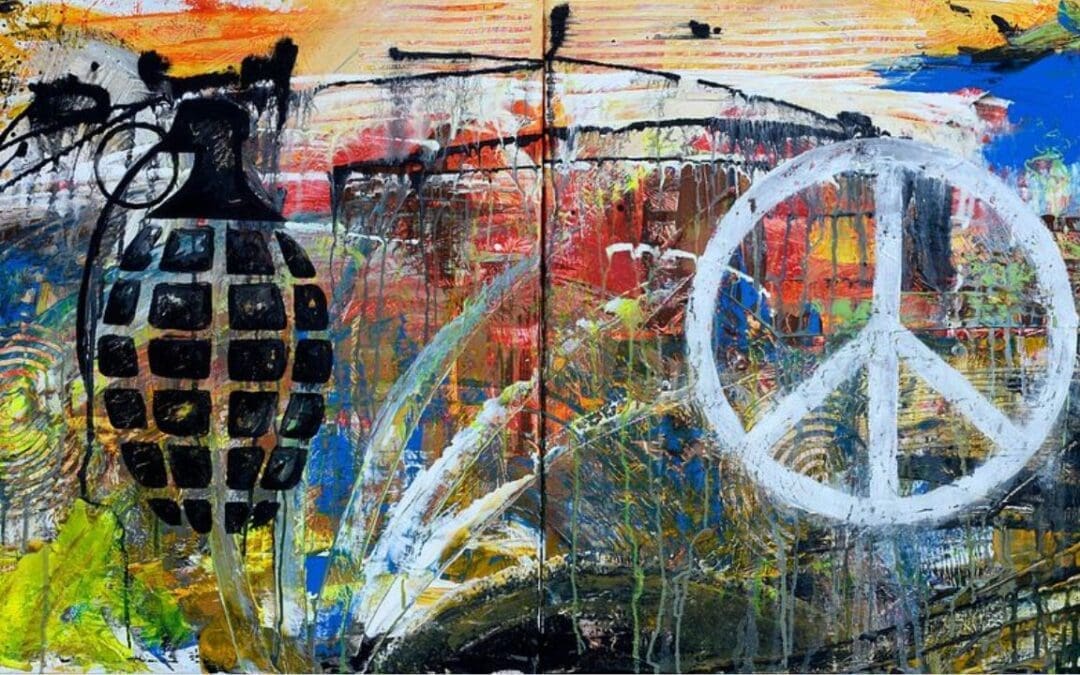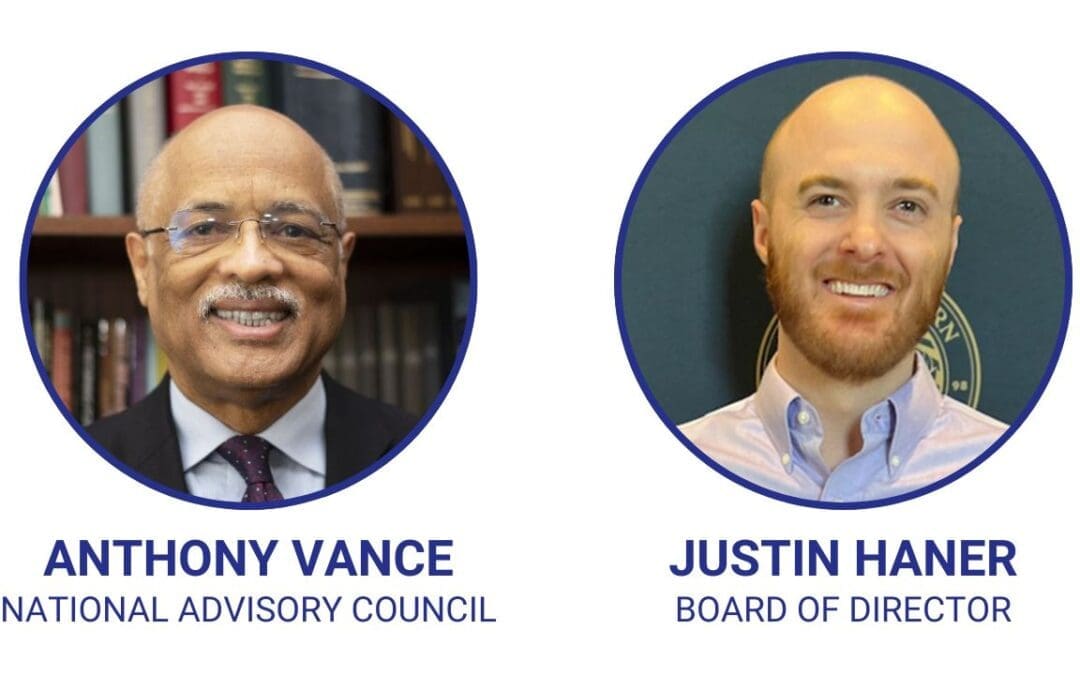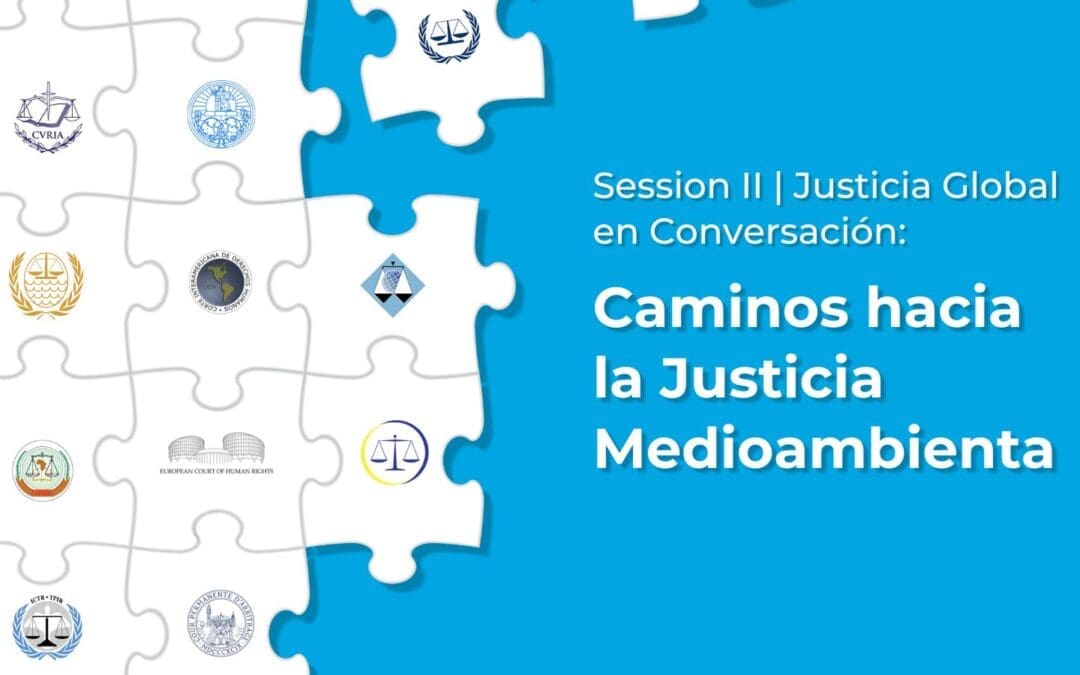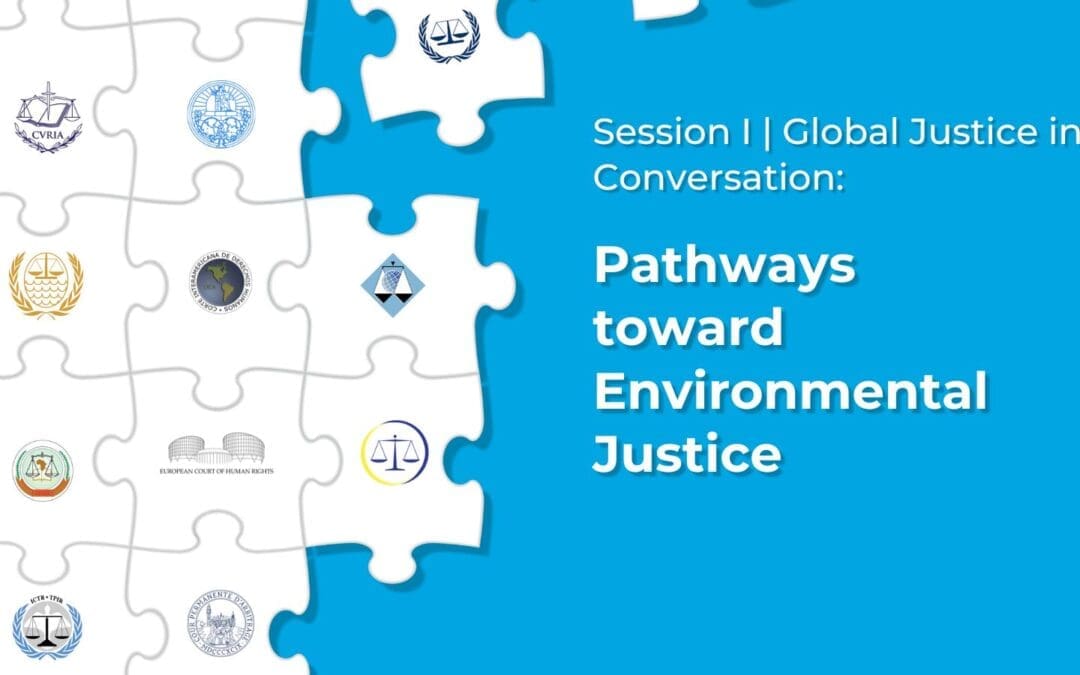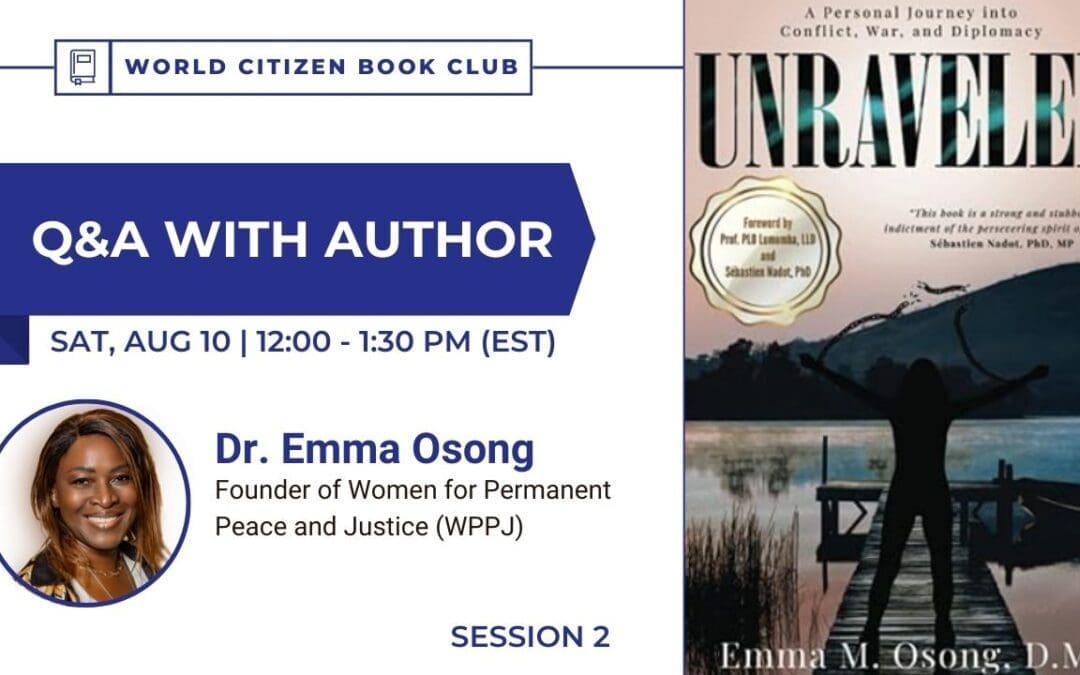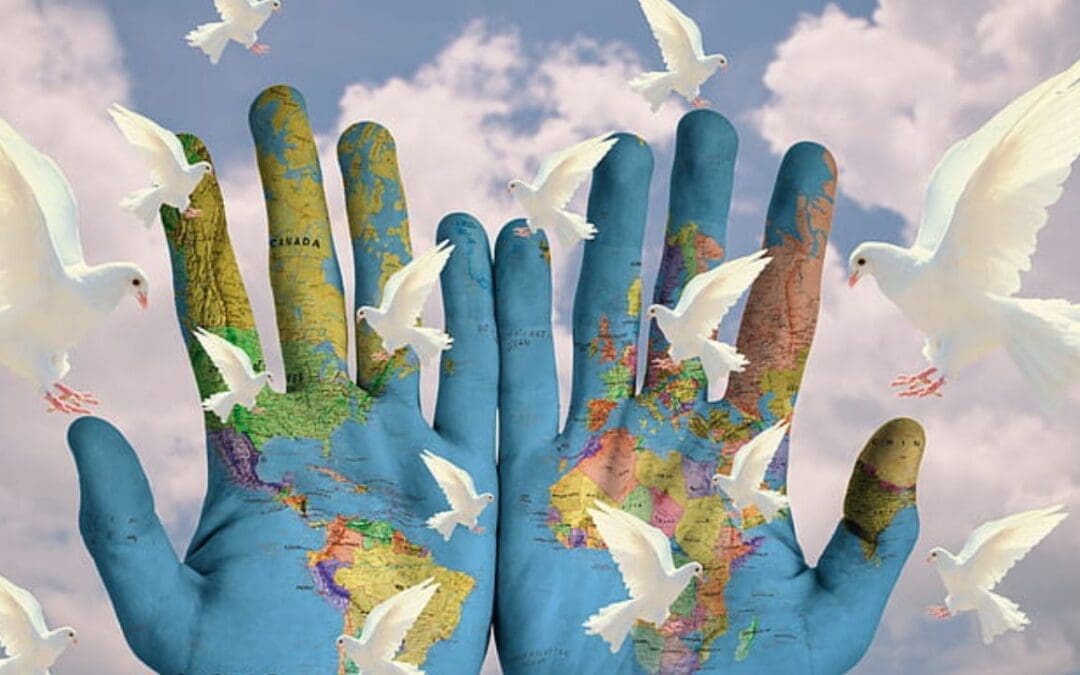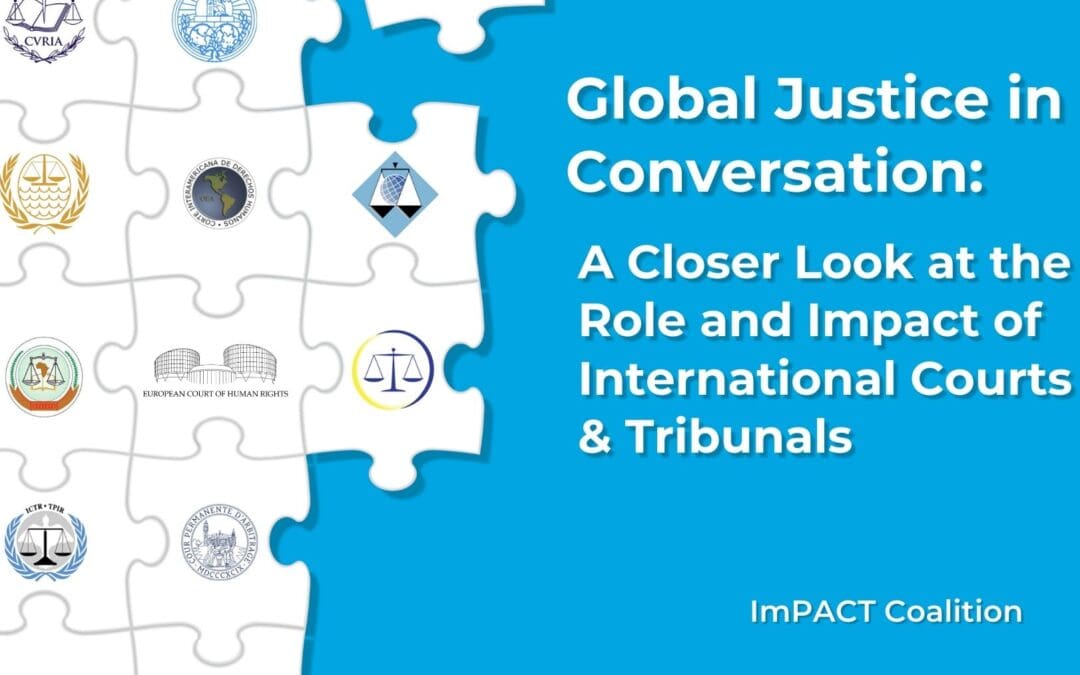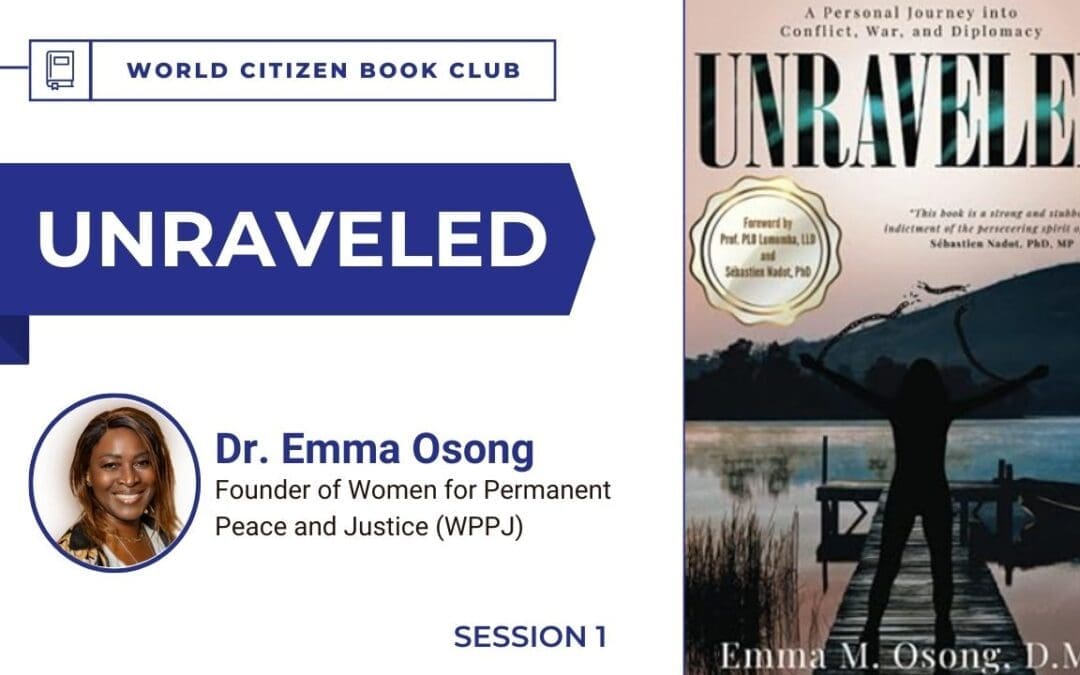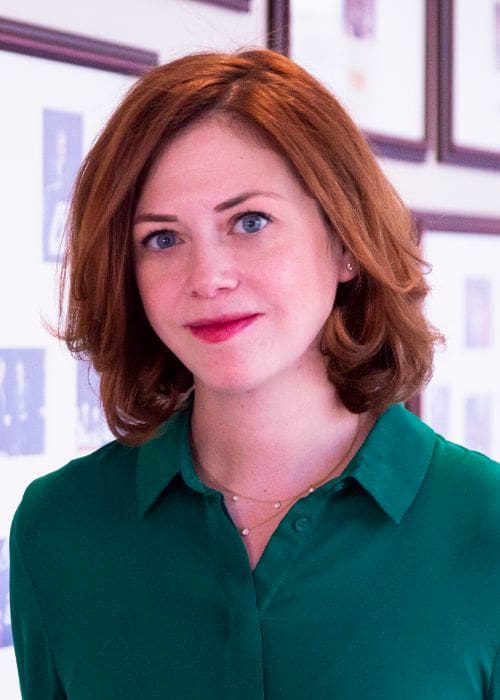
by Lawrence Wittner | Sep 18, 2024 | Global Justice
Are the nations of the world doomed to go on fighting the brutal, horrifying wars that have long characterized human history?
We might well wonder about that as we watch, aghast, while Israeli armed forces slaughter thousands of Palestinian civilians, Russian military might relentlessly pounds Ukrainian towns and cities into rubble, and new, bloody wars erupt in numerous other lands.
Why does such widespread destruction and human suffering persist in the modern, ostensibly “civilized,” world?
A variety of explanations have been advanced. Some observers point to capitalism, others blame dictatorial rule, while still others place the onus on xenophobia, religious differences, racism, and toxic masculinity.
Each of these factors has some weight. Certainly greed, authoritarian arrogance, inflamed nationalism, religious and racial animosities, and male violence have played some role in dividing people and, thereby, fostering wars among them over the course of history.
But are these factors sufficient to explain the stubborn persistence of war? After all, wars existed long before the advent of capitalism and, furthermore, since then, non-capitalist (for example, Communist) nations have repeatedly waged wars, even against one another. Similarly, democratic nations have plunged regularly into numerous wars, some against their fellow democracies. Moreover, even countries whose populations have friendly ties, have the same racial composition and religion, and have taken major strides toward gender equality (including admission of women to the armed forces and top posts in government) seem quite willing to prepare for and engage in war with each other.
Something is clearly missing from these explanations of widespread international violence―something fundamental. Could it be the structure of international relations?
International relations specialists have long argued that the driving force behind international war is global anarchy. Humanity, like war, has existed for thousands of years. But, although humans have gradually created governments to establish effective laws regulating behavior within their territories―regions, cities, states, and, ultimately, nations―they have failed to do so for the world. Thus, on the global level, nations have been left largely to their own devices. The resulting situation resembles the American Wild West, characterized by the absence of law enforcement and the prevalence of heavily armed gangs.
For centuries, scholars have pointed to the need for creating transnational structures to end this global nightmare. The theologian and diplomat Hugo Grotius helped develop the concept of international law, while writers such as Dante Alighieri, Immanuel Kant, and H.G. Wells promoted the idea of global governance.
After the atomic bombing of Japan and the ensuing scramble for nuclear weapons starkly revealed the peril of nuclear annihilation, the call for a full-scale transformation of international relations became even sharper. Albert Einstein, the chair of the Emergency Committee of Atomic Scientists, stated bluntly: “Mankind’s desire for peace can be realized only by the creation of a world government.”
Norman Cousins, editor of one of America’s major magazines of the era (the Saturday Review), played a key role in channeling Einstein’s call into a postwar campaign for a global federation of nations. “The only security for Americans today, or for any people,” Cousins contended, is “a system of world order that enables nations to retain sovereignty over their own cultures and institutions but that creates a workable authority for regulating the behavior of nations in their relationships with one another.” Cousins served as president of United World Federalists (which morphed into the World Federalist Association and, eventually, Citizens for Global Solutions), the U.S. member organization of the World Federalist Movement.
Benjamin Ferencz, the U.S. prosecutor at the Nuremberg War Crimes Trials of the late 1940s, became an important popularizer of this world federalist approach. In his widely-read book, PlanetHood, Ferencz told Americans that, in the United States, “we have four layers of government: city, county, state, and national,” created “to avoid anarchy within our nation.” Thus, adding “one more layer of government will enable us to have an abundant future on this planet.” Indeed, “international governance―something like a United Nations of the World―will rescue us from our deadly predicament.”
Critics, of course, might argue that a United Nations already exists, and has often proved unable to prevent the recurrence of war. But Ferencz’s answer―and, usually, the answer of the world federalist movement―was that, although the United Nations had significant accomplishments to its credit, the UN Charter “was deliberately made weak” by the major powers. As a result, it “did not give the United Nations the binding strength needed to get rid of international lawlessness.” Ultimately, “the only way to permanently solve the problem of war is to replace the Law of Force with the Force of Law.” This perspective led, in recent years, to the establishment of the LAW not War campaign, designed to promote the universality of the International Court of Justice.
World federalists can also point to a dramatic decline in war when independent nations accepted limitations on their sovereignty. In the late eighteenth century, as 13 British North American colonies gained their independence, they could have followed the usual global pattern of war with one another. But, instead, they gradually created a federal union (the United States) and fought only one war within their ranks during the following 235 years. Similarly, although European nations had undergone centuries of war with each other before they went at it again in World War II, members of the European Union, formed in the aftermath of that devastating war (and now encompassing 27 nations), succeeded in ending war among them.
The issue of transcending the ages-old practice of international war certainly remains relevant today. Indeed, the United Nations is moving forward with plans for a Summit of the Future in late September. Designed to address “global governance,” among other issues, the Summit provides yet another opportunity for nations to empower the world organization to maintain international peace through the enforcement of world law.
Is that goal realistic? Perhaps so, perhaps not. But how realistic is it to continue the anarchy of nations, which today threatens universal death and destruction?
Image source: https://www.asymmetricalhaircuts.com/episodes/in-memoriam-benjamin-b-ferencz/

by Sovaida Maani Ewing | Aug 30, 2024 | Peace
The intensifying cascade of global crises including intractable wars, massive human rights atrocities, nuclear proliferation, climate change and environmental degradation, the growing inequality between the rich and the poor, recurring bouts of global financial instability, and the increasing risks of pandemics to name but a few, call to mind the warning sounded by Arnold Toynbee, one of the most highly-regarded authorities and foremost experts on international affairs and world history in the 20th century, that humanity would be faced with an existential crisis followed by his recommendation as to what we, the family of nations, should do in response.
Toynbee contended that in the atomic age, humanity would have to choose between political unification and mass suicide. He believed the chief obstacle to political unification was a long-standing destructive habit of the West which he referred to as the habit of “divisive feeling” to which we tended to easily succumb as opposed to reaching for our more recently-adopted habit of “world-mindedness.” The good news he said was that just as new habits could be adopted, old ones could also be modified or abandoned. He stressed that as a general rule, we humans would opt to abandon even our most deeply-rooted habits once it became clear that clinging to them would spell disaster.
He recommended that we replace our outworn habit of divisive feeling with a new habit of common action on a worldwide scale through the creation of some form of limited world-state that would be empowered to act in humanity’s collective interest in certain narrow fields of endeavor. Already, as far back as the 1970’s he believed that the global community needed to engage in common action on a world-wide scale in at least two areas: to control atomic energy through a World Authority and to administer the production and distribution of food through another World Authority. Now, just over fifty years hence, we can confidently add climate change to this list.
Toynbee predicted that global circumstances we unwittingly created through our technological advancements would eventually force us to submit to a limited world government once we realized it was our only hope for salvation in the face of an existential threat. He believed we would wait until the eleventh hour before making a radical shift to establish such a government even though we would do this kicking and screaming all the way.
He was very clear in recognizing our visceral fears about and knee-jerk reaction in opposition to a world government that might become a draconian centralized bureaucracy imposing its will on local governments around the world. He made the following compelling arguments to dispel these fears.
Firstly, a world government should be minimal and should be limited in its sphere of action. World leaders should therefore confine the authority of a world government they established only to that which was strictly necessary for their self-preservation right now.
Secondly, he stressed that in the atomic age, world government should come about voluntarily through the mutual consent and cooperation of world powers rather than through the use of force. He warned that any attempt to impose political unity by force would be ineffective as it would only lead to stiff resistance and a resurgent nationalism as soon as an opportunity to revolt presented itself.
Thirdly, the prerequisite for such an endeavor to succeed lies in the universal adoption of an ideology of world-mindedness that we had never achieved before.
Toynbee believed that the structure of a limited world state would likely be a federal one in which previously independent units would voluntarily come together in a global union. He argued that this was the most likely scenario given that states generally prefer to preserve their identity and retain their autonomy to act locally; they would likely be willing to cede power to a world government only in limited areas in which it served their collective interests to do so.
Lastly, he believed that humanity needed to forge some unity of thought as to what constituted right and wrong. In other words, it was necessary to adopt a shared set of moral values that would serve to harmonize the disparate social and cultural heritages that had evolved independently of each other over the course of human history. Without fundamental agreement on moral issues he argued, it would be difficult to achieve political unification.
Given the rapid disintegration of countries and societies around the world and the accelerating fragmentation and polarization that are rending apart the fabric of our global society, is it not time for us to step up and make the choice to collaborate, cooperate and deepen our integration as a global society? To this end is it not time we take a step in the direction of collective maturity by voluntarily consenting to political unification by forming a limited democratic federal world government? Imagine what we could achieve if we engaged in collective and consultative decision-making in order to meet the pressing needs and the greatest global challenges of our time as opposed to opting for what Toynbee coined the “Great Refusal” that would inevitably result in carnage and devastation on a scale never before seen.
Image source: rawpixel.com

by CGS | Aug 27, 2024 | Press Release
Washington, DC– Citizens for Global Solutions (CGS) is honored to announce Anthony Vance, Senior Representative, U.S. Bahá’í Office of Public Affairs joins our National Advisory Council (NAC).
Anthony oversees the development of the Bahá’ís of the United States Office of Public Affairs programs and strategic direction. He joined the office in 2010 after spending four years at the Baháʼí World Center in Haifa, Israel representing it to the diplomatic community, civil society, and parts of the host government. A lawyer by training, he spent 21 years in the U.S. Agency for International Development in legal and managerial positions in Washington, Côte d’Ivoire Kenya, Botswana, and Egypt. Mr. Vance holds a B.A. in Economics, an MBA, and a J.D. from Harvard University.
Larry David, Member, Executive Committee, CGS Education Fund Board of Directors said of Vance’s appointment, “The Baha’is and Citizens for Global Solutions have long-shared common goals relating to the need to replace an international system that allows for war with one which does not. The organizations are naturally allied. Anthony Vance’s joining the CGS Advisory Council underscores that informal alliance. CGS is fortunate to have an individual of Anthony Vance’s position and training advising its board and is strengthened by his decision.”
Dr. Justin Haner, Member of the Board of Directors
It is with great pleasure that Larry David also welcomes Justin to the Education Fund Board of Directors. Larry states, “Dr. Haner brings an academic perspective, deep preparation, and a thorough understanding of the history and scope of international law, its applications, and its shortcomings. We fellow board members are honored by Justin Haner’s choice to give volunteer service to support CGS and its focus on international peace and justice.”
Justin is a political scientist and research fellow at the Watson Institute for International and Public Affairs at Brown University. From traditional security concerns to artificial intelligence and cybersecurity, his scholarship focuses on the transformative power that international law and organizations can have on solving complex global and regional security issues. Committed to ensuring his work resonates beyond the classroom, he campaigns on the dire need to reform the United Nations, including as a co-drafter of the People’s Pact for the Summit of the Future and an active contributor to the Coalition for the UN We Need. Justin is also a committed public servant with twelve years of combined experience in the military and local government. As a former Captain in the US Army Infantry, he led a mechanized rapid reaction force just south of the Korean DMZ and was selected to serve as Executive Officer to the United Nations Command Honor Guard. He currently serves as an elected Representative for Town Meeting and appointed Capital Budget Committee board member in Walpole, MA, where he works on a variety of local issues from promoting racial and gender inclusivity, to reducing his town’s environmental impact.
About Citizens for Global Solutions
Citizens for Global Solutions is a non-governmental, non-profit, non-partisan membership-based organization that for more than 75 years has brought together a diverse collective of individuals and organizations with a common goal of a unified world predicated upon peace, human rights, and the rule of law. From championing ratification of the UN Charter upon our establishment in 1947 to supporting creation of the International Criminal Court (ICC) 25 years ago to advocating for global instruments to confront today’s enduring challenges of war and climate degradation, CGS recognizes that true progress is a generational enterprise. We invite like-minded individuals and organizations to join us in this mission.
Contact: outreach@globalsolutions.org

by CGS | Aug 21, 2024 | Past Event
Hay un reconocimiento amplio que el mundo enfrenta un momento de crisis medioambiental profunda. Aun así, la naturaleza existencial de esta amenaza puede dar una impresión falsa de que actores responsables no puedan ser identificados o que estén más allá del alcance de la justicia global. Recientemente, hemos visto desarrollos prometedores en el intento para lograr la responsabilidad por daños atroces a la humanidad y al planeta. Este evento se llevará a cabo en español solamente.

by CGS | Aug 21, 2024 | Past Event
The ImPACT Coalition on Just Institutions and the International Court of Justice (ICJ) hosted two webinars in cooperation with the ImPACT Coalition on Earth Governance exploring judicial pathways toward environmental justice. The ImPACT Coalitions were established as part of a civil society-led complement to the UN Summit of the Future process and tackle a diverse array of global governance issues.
To date, the ImPACT Coalition on Just Institutions and the ICJ has convened three webinars to raise greater awareness of the roles, successes, and interaction among international judicial institutions, and to support advocacy toward their greater universality and effectiveness.
This webinar addresses environmental justice issues. There is widespread recognition that the world faces a moment of profound environmental crisis. And yet, the existential nature of this threat may give a false impression that actors responsible cannot be identified or are beyond the arm of global justice. Recent years have seen hopeful developments in the attempt to achieve accountability for heinous harms to humanity and the planet.
These include: The advancement of both requests for Advisory Opinions and contentious cases on State responsibility for environmental degradation, including climate change, before the ICJ and International Tribunal for the Law of the Sea (ITLOS); Support for a new Crime of Ecocide to be included by amendment within the Rome Statute of the International Criminal Court (ICC), including a robust report by an independent expert panel, as well as the promulgation of a policy by the current Prosecutor to actively investigate and prosecute environmental crimes within the Court’s current jurisdiction; Seminal precedential rulings at the regional level, including the Inter-American Court and European Court systems; The historic completion of reparations payments after more than three decades, including for environmental damage, for the illegal invasion by Iraq of Kuwait in 1990; and Introduction of proposals for new judicial institutions with distinct subject matter jurisdiction capable of addressing the multifaceted and intersectional challenges of environmental crimes, including an International Environmental Court and International Anti-Corruption Court (IACC).
At the same time, experiments like a widely critiqued ICJ Environmental Chamber, active from 1993-1996, provide cautionary tales. This webinar, organized by Citizens for Global Solutions (CGS), with the Raoul Wallenberg Institute of Human Rights and Humanitarian Law, and the World Federalist Movement-Institute for Global Policy (WFM-IGP), probes potential pathways to environmental justice in international and regional courts and tribunals.

by CGS | Aug 10, 2024 | Past Event
Watch Session II with author, Dr. Emma Osong, and special Q&A; where we discussed her book, Unraveled: A Personal Journey into Conflict, War, and Diplomacy.
Dr. Emma’s book called the “Unraveled” where two worlds collide in this emotional journey provides a blueprint on how to promote peace and justice amid times of war. Emma Osong’s world was turned upside down when her daughter Praxie was told she would never walk again. Faced with the traumatic circumstances of her daughter’s condition, Osong draws comparisons between her daughter and her war-ravaged country of origin, Cameroon. Detailing the events in Cameroon and the struggles of its people trapped in decades of tyranny, Osong interweaves the history of a war-torn country with threads of a personal conflict.
Dr. Emma Osong is founder of Women for Permanent Peace and Justice (WPPJ). Emma has celebrated an extensive career in speaking, engineering, peacebuilding, and leadership. Speaking engagements include appearances on Voice of America (VOA), Equinox TV, ABC, and several podcasts and international conferences. As an accomplished aerospace systems engineer, she brings an informative and crucial voice to STE’A’M topics, encouraging young women in underdeveloped and developing countries to explore career paths within STEM fields. Emma’s goal is to create a world where women, men, and children all have the right to live dignified life.
For more information on current CGS World Citizen Book Club Sessions visit our CGS Book Club page.

by Lawrence Wittner | Aug 8, 2024 | Peace
Although the current U.S. presidential campaign has focused almost entirely on domestic issues, Americans live on a planet engulfed in horrific wars, an escalating arms race, and repeated threats of nuclear annihilation. Amid this dangerous reality, shouldn’t we give some thought to how to build a more peaceful future?
Back in 1945, toward the end of the most devastating war in history, the world’s badly battered nations, many of them in smoldering ruins, agreed to create the United Nations, with a mandate to “maintain international peace and security.”
It was not only a relevant idea, but one that seemed to have a lot of potential. The new UN General Assembly would provide membership and a voice for the world’s far-flung nations, while the new UN Security Council would assume the responsibility for enforcing peace. Furthermore, the venerable International Court of Justice (better known as the World Court) would issue judgments on disputes among nations. And the International Criminal Court―envisioned at the time but created nearly four decades later―would try individuals for crimes of genocide, crimes against humanity, war crimes, and crimes of aggression. It almost seemed as if a chaotic, ungovernable, and bloodthirsty pack of feuding nations had finally evolved into the long-standing dream of “One World.”
But, as things turned out, the celebration was premature.
The good news is that, in some ways, the new arrangement for global governance actually worked. UN action did, at times, prevent or end wars, reduce international conflict, and provide a forum for discussion and action by the world community. Thanks to UN decolonization policies, nearly all colonized peoples emerged from imperial subjugation to form new nations, assisted by international aid for economic and social development. A Universal Declaration of Human Rights, adopted in 1948, set vastly-improved human rights standards for people around the world. UN entities swung into action to address new global challenges in connection with public health, poverty, and climate change.
Even so, despite the benefits produced by the United Nations, this pioneering international organization sometimes fell short of expectations, particularly when it came to securing peace. Tragically, much international conflict persisted, bringing with it costly arms races, devastating wars, and massive destruction. To some degree, this persistent conflict reflected ancient hatreds that people proved unable to overcome and that unscrupulous demagogues worked successfully to inflame.
But there were also structural reasons for ongoing international conflict. In a world without effective enforcement of international law, large, powerful nations could continue to lord it over smaller, weaker nations. Thus, the rulers of these large, powerful nations (plus a portion of their citizenry) were often reluctant to surrender this privileged status.
Symptomatically, the five victorious great powers of 1945 (the United States, the Soviet Union, Britain, France, and China) insisted that their participation in the United Nations hinged upon their receiving permanent seats in the new UN Security Council, including a veto enabling them to block Security Council actions not to their liking. Over the ensuing decades, they used the veto hundreds of times to stymie UN efforts to maintain international peace and security.
Similarly, the nine nuclear nations (including these five great powers) refused to sign the 2017 Treaty on the Prohibition of Nuclear Weapons, which has been endorsed by the overwhelming majority of the world’s nations. Behind their resistance to creating a nuclear weapons-free world lies a belief that there is much to lose by giving up the status and power that nuclear weapons afford them.
Of course, from the standpoint of building a peaceful world, this is a very short-sighted position, and the reckless behavior and nuclear arrogance of the powerful have led, at times, to massive opposition by peace and nuclear disarmament movements, as well as by many smaller, more peacefully-inclined nations.
Thanks to this resistance and to a widespread desire for peace, possibilities do exist for overcoming UN paralysis on numerous matters of international security. Unfortunately, it would be very difficult to abolish the Security Council veto outright, given the fact that, under the UN Charter, the five permanent members have the power to veto that action, as well. But Article 27(3) of the Charter does provide that nations party to a dispute before the Council must abstain from voting on that issue―a provision that provides a means to circumvent the veto. In addition, 124 UN nations have endorsed a proposal to scrap the veto in connection with genocide, crimes against humanity, and mass atrocities, while the UN General Assembly has previously used “Uniting for Peace” resolutions to act on peace and security issues when the Security Council has evaded its responsibility to do so.
Global governance could also be improved through other measures. They include increasing the number of nations accepting the compulsory jurisdiction of the International Court of Justice and securing wider ratification of the founding statute of the International Criminal Court (which has yet to be ratified by Russia, the United States, China, India, and other self-appointed guardians of the world’s future).
It won’t be easy, of course, to replace the law of force with the force of law. Only this May, the prosecutor of the International Criminal Court took a bold step toward strengthening international norms by announcing that he was seeking arrest warrants for top Israeli officials and Hamas commanders for crimes in and around Gaza. In response, the Republican-controlled U.S. House of Representatives passed the “Illegitimate Court Counteraction Act,” legislation requiring the U.S. executive to impose sanctions on individuals connected with the ICC.
Despite the nationalist backlash, however, the time has arrived to consider bolstering international institutions that can build a more peaceful world. And the current U.S. presidential campaign provides an appropriate place for raising this issue. After all, Americans, like the people of other lands, have a personal stake in ensuring human survival.

by CGS | Jul 18, 2024 | Past Event
The International Day of Justice, July 17, commemorates the day in 1998 when the Rome Statute was adopted establishing the International Criminal Court (ICC). Today, the ICC forms an integral piece of a complex and complementary global judicial architecture, joining treaty-based tribunals, regional institutions, and alternative methods of dispute resolution. At the heart of this framework is the International Court of Justice (ICJ), which was established in 1945 as one of the principal organs of the United Nations, and primary means for the pacific resolution of disputes between states.
This International Justice Week, watch Session I of the inaugural webinars in a series intended to take a closer look at these institutions and how they can effectively complement one another and domestic judicial systems.
Session II: In this session, we focused on the ongoing situations and cases where multiple international pathways to justice are concurrent, including the ICJ and other judicial institutions. This session considers how these mechanisms can be complementary and probe what more must be done to realize the promise of an end to impunity.
Speakers:
H.E. Corinne Cicéron Bühler, Ambassador of Switzerland to The Netherlands.
Prof. Jennifer Trahan, Clinical Professor, Center for Global Affairs, NYU.
Arie Mora, Advocacy and Communications Manager at the Ukrainian Legal Advisory Group (ULAG).
Dr. Habib Ullah, Convening Council Member of Congress of Nations and States General Secretary of Arakan Rohingya National Organisation (ARNO).
Neshan Gunasekera, Visiting Fellow, Raoul Wallenberg Institute of Human Rights.

by CGS | Jul 18, 2024 | Past Event
The International Day of Justice, July 17, commemorates the day in 1998 when the Rome Statute was adopted establishing the International Criminal Court (ICC). Today, the ICC forms an integral piece of a complex and complementary global judicial architecture, joining treaty-based tribunals, regional institutions, and alternative methods of dispute resolution. At the heart of this framework is the International Court of Justice (ICJ), which was established in 1945 as one of the principal organs of the United Nations, and primary means for the pacific resolution of disputes between states.
This International Justice Week, watch Session I of the inaugural webinars in a series intended to take a closer look at these institutions and how they can effectively complement one another and domestic judicial systems.
In this session, we discussed Nuclear Nonproliferation and Disarmament: Lessons from the Asia-Pacific Region discussed how we will highlight the important role of the ICJ, why it has a surprisingly high success rate with regard to disputes that it adjudicates, examples of a few of the success stories of the Court and why all countries should move to accepting its compulsory jurisdiction.
Speakers:
Hon. Matt Robson (New Zealand). President, Aotearoa (NZ) Lawyers for Peace. Former parliamentarian with positions of Minister for Courts and Minister for Disarmament and Arms Control.
Dr. Penelope Ridings (New Zealand), Member of the International Law Commission.
Luis Roberto Zamora Bolaños (Costa Rica), Board Member, International Association of Lawyers Against Nuclear Arms. Human & Civil Rights Lawyer.

by CGS | Jul 13, 2024 | Past Event
Watch Session I with author, Dr. Emma Osong, and special Q&A; where we discussed her book, Unraveled: A Personal Journey into Conflict, War, and Diplomacy.
Dr. Emma’s new book called the “Unraveled” where two worlds collide in this emotional journey provides a blueprint on how to promote peace and justice amid times of war. Emma Osong’s world was turned upside down when her daughter Praxie was told she would never walk again. Faced with the traumatic circumstances of her daughter’s condition, Osong draws comparisons between her daughter and her war-ravaged country of origin, Cameroon. Detailing the events in Cameroon and the struggles of its people trapped in decades of tyranny, Osong interweaves the history of a war-torn country with threads of a personal conflict.
Dr. Emma Osong is founder of Women for Permanent Peace and Justice (WPPJ). Emma has celebrated an extensive career in speaking, engineering, peacebuilding, and leadership. Speaking engagements include appearances on Voice of America (VOA), Equinox TV, ABC, and several podcasts and international conferences. As an accomplished aerospace systems engineer, she brings an informative and crucial voice to STE’A’M topics, encouraging young women in underdeveloped and developing countries to explore career paths within STEM fields. Emma’s goal is to create a world where women, men, and children all have the right to live dignified life.
For more information on current CGS World Citizen Book Club Sessions visit our CGS Book Club page.


